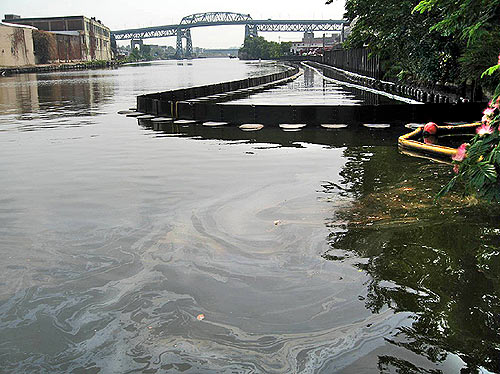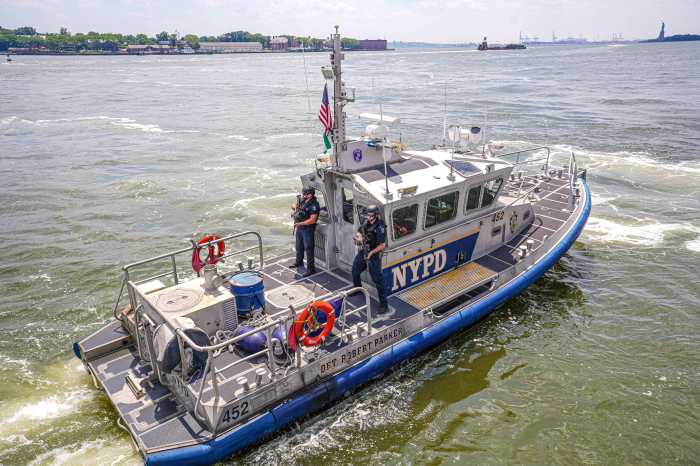Three and a half decades after the discovery of the Greenpoint oil spill, it’s payback time.
Officials are about to begin handing out $19.5 million in oil company money to Greenpoint community members with creative notions about how to gussy up a neighborhood that suffered through an oil spill that was three times the size of the Exxon Valdez disaster, but some residents worry that the biggest chunks of money will be reserved for well-connected companies, leaving crumbs for everyday environmentalists with innovative ideas.
“A lot of people are skeptical or concerned about who is going to get the money, whether it’s going to be for the people in the community,” local activist Rolf Carle said.
The money will come out of the Greenpoint Community Environmental Fund, a trust created by the state as part of a court settlement for the damage wrought by the oil that seeped into Newtown Creek and soaked Greenpoint’s soil over several decades. The state Attorney General’s Office officially holds the purse strings but has left the grant-making to U.S. Fish and Wildlife Services and the North Brooklyn Development Corporation, a pro-business group. These administrators have split the awards into two types, small grants from $3,000 to $25,000 and “legacy” grants from $25,001 to $3-million, leaving residents worried that the top payouts will go to bigwigs while small amounts will be used to pacify the masses.
“I think they want to pepper the neighborhood, give out $10,000 here and $10,000 there to keep people from complaining,” said Carle, adding he does not have time to apply for grant money himself but that he hopes that someone will pick up the charge and develop his passion of reusing household water into a proposal.
Some of the more than 200 Greenpointers who showed up at a meeting about the money this week echoed those concerns, and fund administrators said they heard the message loud and clear.
“We’re going to make sure we do the job for the Greenpoint community in a way that no one feels we had undue influence or a bias towards anyone,” said Richard Mazur, executive director of the North Brooklyn Development Corporation.

The community fund was created in 2010 when Exxon Mobil and other oil giants opted to settle a lawsuit brought by neighborhood residents. Greenpointers at past meetings have floated clean-up ideas such as installing permeable pavement around the neighborhood, digging up a section of Commercial Street to make a park, and making rooftop gardens.
The administrators plan to release the requests for proposals in early October and has set a first application deadline of Nov. 20. Exxon Mobil, British Petroleum, and Chevron are also still on the hook for sucking up the toxic sludge from underground and below Newtown Creek.
The fetid waterway has accumulated pollution in its sediment and water since the 1850s, when it was one of the busiest hubs of industrial activity in the country, and the federal government declared it a Superfund site in 2009.
The spill, which seeped into the ground from scores of refineries between 1860 and 1947, was first discovered by the Coast Guard in 1978.
The Environmental Protection Agency says that 30 million gallons of oil seeped from underground refineries into Greenpoint’s soil and groundwater, but little work was done to clean the site until 2004 when the environmental organization Riverkeeper sued Exxon Mobil, British Petroleum and Chevron, the companies that bought up the sources of the historical pollution. The suit was later joined by local residents and public officials, including Borough President Markowitz.
Exxon Mobil took in the most profits of any publicly traded company in the world in 2012 (Chevron took in the eighth most) and the Greenpoint community fund is chump change compared to other oil spill settlements. Exxon Mobil paid $507-million in damages to people and companies affected by the Valdez oil disaster in Alaska after appealing the amount down from $2.5-billion in a decade-and-a-half-long court battle. British Petroleum has so far paid $42.4-billion in damages to people affected by the 2010 Deepwater Horizon spill, the largest in U.S. history, but recently filed to stop payments.


























